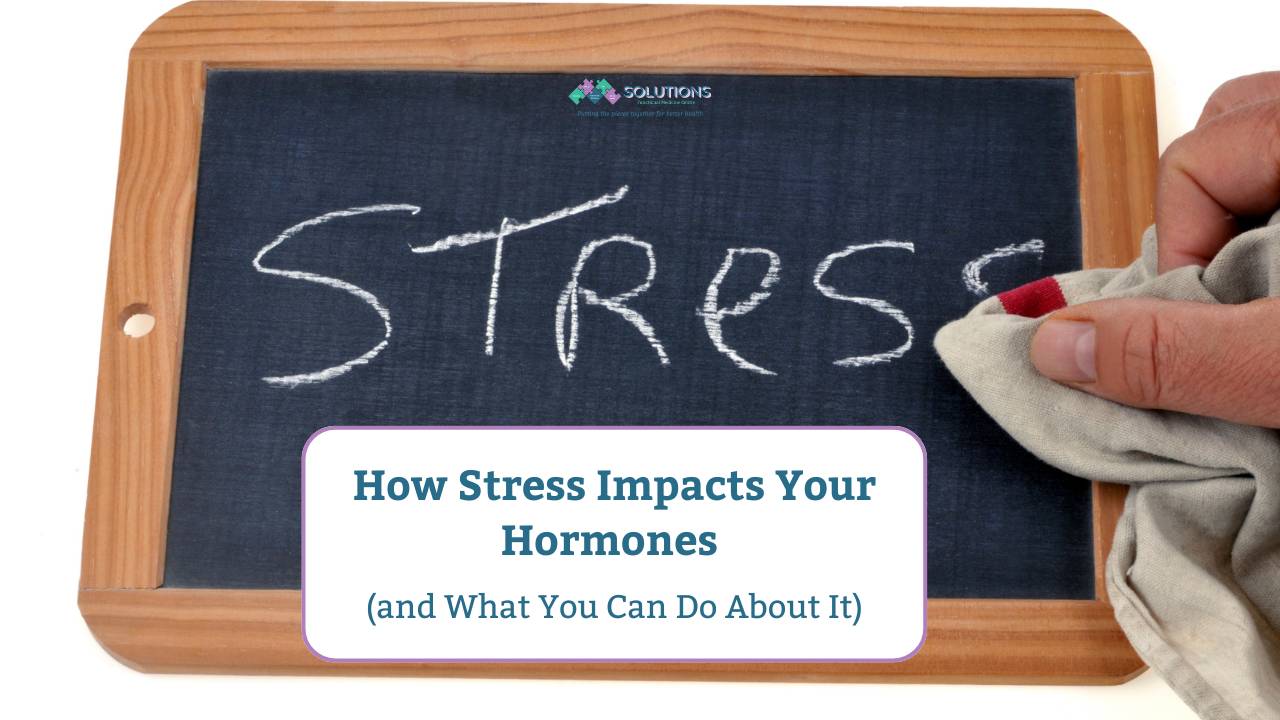How Stress Impacts Your Hormones (and What You Can Do About It)

Stress Is More Than Just a Feeling
When most people think of stress, they think of emotional overwhelm, busy schedules, family responsibilities, and sleepless nights. But stress isn’t just something that happens in your head. It’s a whole-body experience, and your hormones often take the hit first!
If you’ve been feeling “off” but can’t quite put your finger on it, this blog is for you!
The Stress-Hormone Connection
Your body is built to handle short-term stress. That’s what cortisol (your primary stress hormone) is for. It gives you the burst of energy you need to react and recover.
But when stress becomes chronic, your cortisol stays elevated, and that can throw off your entire hormonal system. Estrogen, progesterone, thyroid hormones, and even insulin levels can all become imbalanced when your nervous system is stuck in fight-or-flight.
Over time, this can impact:
-
Menstrual cycles
-
Sleep patterns
-
Weight regulation
-
Mood stability
-
Digestive health
-
Fertility
Stress might not be the only reason you’re experiencing symptoms, but it’s often the one that goes unchecked the longest.
What Does Stress Look Like in the Body?
You don’t have to feel “stressed out” to be carrying a stress load. Your body sends signals, even when your mind says you’re doing fine.
Common signs your body is under chronic stress:
-
Afternoon energy crashes
-
Poor sleep, even when tired
-
Irritability or low mood
-
Worsening PMS or irregular cycles
-
Hair thinning or skin breakouts
-
Cravings for sugar, salt, or caffeine
-
Digestive issues (bloating, constipation, urgency)
-
Anxiety or feelings of being constantly “on edge”
These are signs your body is compensating and asking for support.
Hidden Stressors You Might Be Missing
In Functional Medicine, we look beyond emotional stress to find hidden stressors that put pressure on your system. You might be surprised what qualifies:
-
Blood sugar crashes from skipping meals or eating too many processed carbs
-
Sleep deprivation or poor-quality rest
-
Overexercising without recovery time
-
Under-eating, especially when paired with high demands
-
Gut imbalances or unresolved infections
-
Nutrient deficiencies, particularly magnesium, vitamin C, and B vitamins
Your body doesn’t just need fewer stressors—it needs more resources to recover from the ones you can’t control.
Nervous System Support (Not Just Relaxation)
It’s not about just relaxing more. The goal is nervous system regulation—teaching your body how to feel safe again, even during life’s busy seasons.
Simple ways to start regulating your nervous system:
-
Spend 10 minutes outdoors each morning (sunlight helps reset cortisol)
-
Include protein, fat, and fiber in every meal to stabilize blood sugar
-
Practice deep breathing or box breathing once per day
-
Try journaling or gentle stretching before bed
-
Reduce caffeine and screen time in the evenings
-
Nourish with stress-supportive nutrients like magnesium, vitamin C, and adaptogens
You don’t have to do all of this at once. Start with one daily habit that feels realistic—and build from there.
Your Next Step: Start With Your Foundations
At Solutions Functional Medicine, we help patients identify the real reasons they’re feeling burned out, anxious, or unbalanced—and we start with the basics:
-
Nervous system regulation
-
Hormone testing
-
Gut and adrenal support
-
Nutritional and lifestyle guidance
If stress is taking a toll on your health, you don’t have to guess your way through it. Let’s uncover what your body needs to feel safe, balanced, and well again.
Book a Discovery Consult today!
You deserve to feel calm, clear, and in control.
Let’s work together to help your body get there—one small step at a time.

